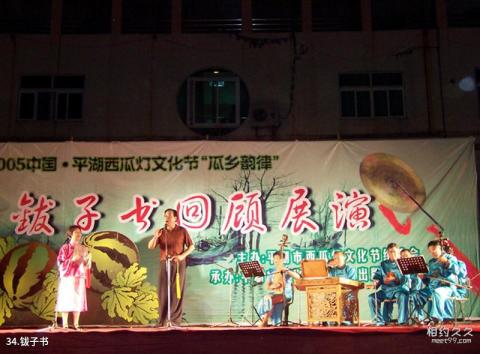
Introduction to Cymbal Book: Cymbal Book is popular in parts of Shanghai Songjiang, Jinshan, Jiaxing and Jiashan adjacent to Pinghu countryside. There are Dongxiang tune and Xixiang tune. Pinghu Bozishu belongs to Xixiang tune and is sung in Pinghu dialect. In the early 1950s, it was collectively referred to as the Farmer's Book together with the Gong and Drum Book. In 1958, it was named after the Pinghu Cymbal Book and was listed as a local song in Zhejiang Province. The singing form of Cymbal Book is simple. When singing, the artist holds a cymbal in his left hand and a bamboo stick in his right hand to strike as an accompaniment. The singing is performed in a single stage. In the old days, it was usually performed by men. Female artists began to appear after the 1960s. The tunes are full of local color, lively and catchy, and include long, slow, urgent, crying and other singing repertoire. Most of the contents of the cymbals are stories from the world of gods, which are similar to ordinary long-form tanci. They include "Da Hong Pao", "Pearl Tower", "Civet Cat for Prince", "Seven Heroes and Five Righteousness", "Green Peony", "Yue" "Biography", "Water Margin", "The Legend of Fei Long", "The Romance of the Three Kingdoms", "The Biography of the Sui and Tang Dynasties", "The Biography of Jigong", etc. It is close to life, easy to understand, adaptable to the broad audience of farmers, and is a local folk art deeply loved by the masses.
